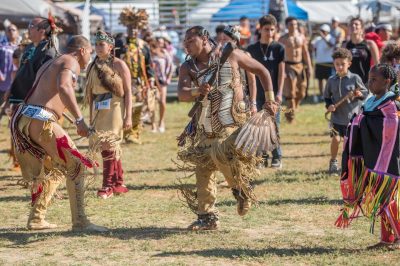 A group of residents of Taunton has started legal action in response to a decision made by the US Department of the Interior in December 2021 to reaffirm the right held by the Mashpee Wampanoag Tribe on 321 acres of reservation land in Mashpee and Taunton.
A group of residents of Taunton has started legal action in response to a decision made by the US Department of the Interior in December 2021 to reaffirm the right held by the Mashpee Wampanoag Tribe on 321 acres of reservation land in Mashpee and Taunton.
In their lawsuit, the residents claim that the neighborhood would be altered and dominated by casino gambling if the tribe is allowed to continue with its plans to establish a casino in East Taunton. The citizens’ group also argues that the tribe is not in line with the definition of “Indian” given by the Federal Government because it was not federally recognized in 1934. The plaintiffs highlight both of these arguments when claiming that the decision of the US Interior Department to reaffirm the land of the Wampanoags breaches the law.
This is the second legal action that has been pursued over the Wampanoag tribe’s land rights by David and Michelle Littlefield, who have previously filed a lawsuit against the US Department of Interior in 2016.
The chairman of the Mashpee Wampanoag Tribal Council, Brian Weeden, noted that the tribe is not afraid to face the most recent lawsuit over its land rights. When it comes to the claims that the proposed casino venue would bring serious changes to the neighborhood, Mr. Weeded said that the land was a piece of the Wampanoags’ native lands before becoming part of the plaintiffs’ neighborhood.
Mashpee Wampanoag Tribe’s Right to the Land Become Subject to Legal Action
 Back in 2015, the US Department of Interior officially gave the right to 321 acres of reservation land in Mashpee and Taunton to the Mashpee Wampanoag tribe. Since then, the land has remained in trust, though the department’s decision in December reiterated the tribe’s right to the land amid a number of legal challenges.
Back in 2015, the US Department of Interior officially gave the right to 321 acres of reservation land in Mashpee and Taunton to the Mashpee Wampanoag tribe. Since then, the land has remained in trust, though the department’s decision in December reiterated the tribe’s right to the land amid a number of legal challenges.
As mentioned above, David and Michelle Littlefield and a group of other Taunton residents supporting them challenged the decision of the Department after the land was put into trust for the tribe. According to them, the decision of the US Department of Interior was illegal, because the tribe did not fall in line with the definition of “Indian” given by the Federal Government, so the land in question could not be put into trust on the tribe’s behalf.
According to the Department, it used the definition of “Indian under the Indian Reorganization Act – “[1] all persons of Indian descent who are members of any recognized Indian tribe now under Federal jurisdiction, and [2] all persons who are descendants of such members who were, on June 1, 1934, residing within the present boundaries of any Indian reservation, and shall further include [3] all other persons of one-half or more Indian blood.”
According to a ruling of a Massachusetts federal court, the tribe was not federally recognized back in 1934, so the Department of Interior was not allowed to put the land into trust for the Wampanoags. In September 2018, under the Trump Administration, it was confirmed that the tribe was not under federal jurisdiction in 1934, so it could not have any land put into trust by the country’s Government. Then, the District Court in the District of Columbia sent this decision back to the Department of Interior, which appealed the ruling.
The Department’s appeal was then withdrawn under the administration of President Biden.